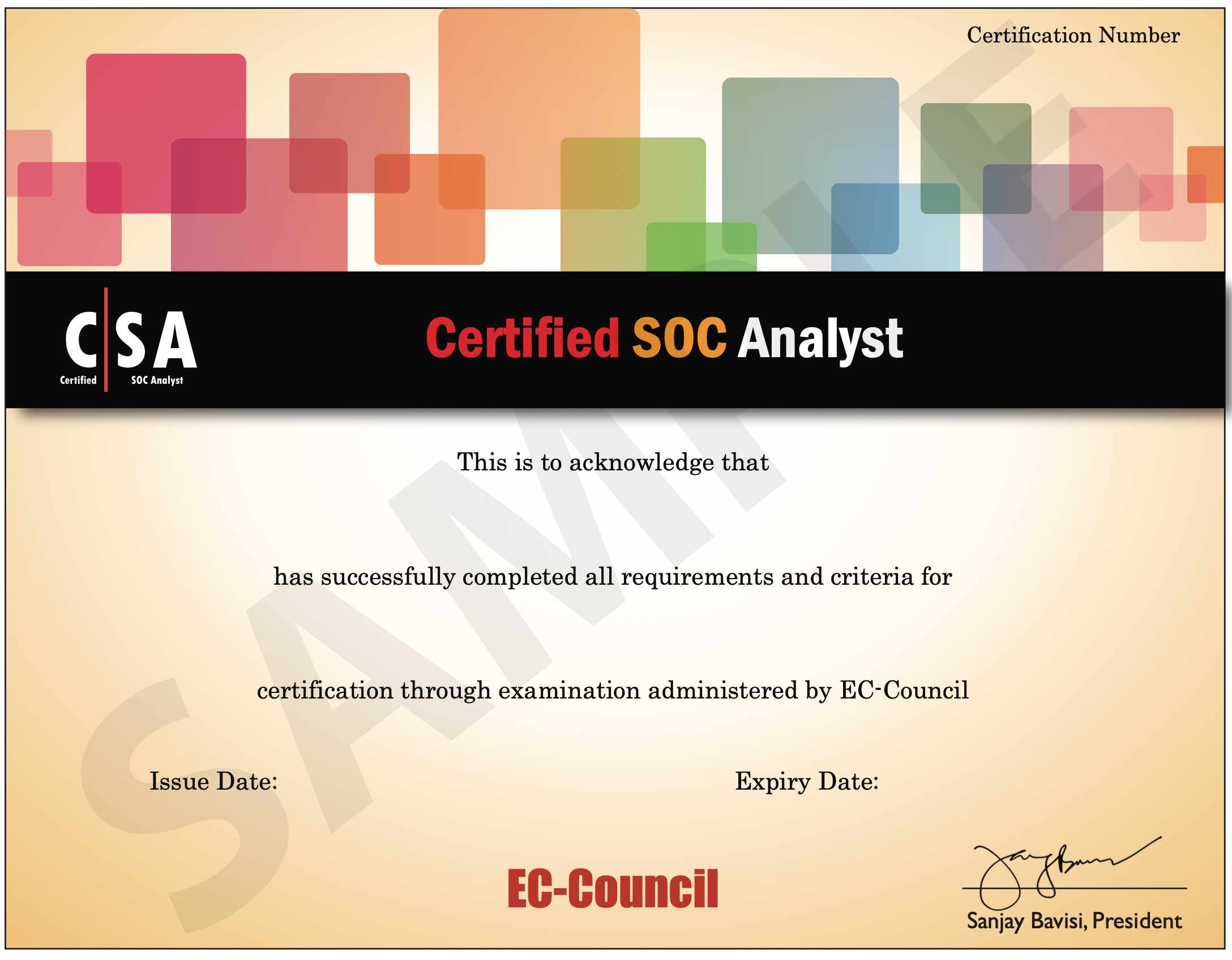EC-Council Disaster Recovery Professional (EDRP)
Course Overview

EC Council Disaster Recovery Professional (EDRP) is a comprehensive professional course that teaches students how to develop enterprise-wide business continuity and disaster recovery plans EDRP provides the professionals with a strong understanding of business continuity and disaster recovery principles, including conducting business impact analysis,
assessing of risks, developing policies and procedures, and implementing a plan EDRP teaches professionals how to secure data by putting policies and procedures in place, and how to recover and restore their organization’s critical data in the aftermath of a disaster
- BC - The strategic and tactical capability of the organization to plan for and respond to incidents and business disruptions in order to continue business operations at an acceptable predefined level.
- DR - The process, policies and procedures related to preparing for recovery or continuation of technology infrastructure, systems and applications which are vital to an organization after a disaster or outage.
- An effective BC/DR plan minimizes the impact of a disruptive event (like a natural disaster or a crippling hack), thus keeping at least the critical business functions running even during a disaster.
Learning Outcomes
Learn to develop comprehensive disaster recovery plans, risk assessments, and business continuity strategies for organizations.
Master techniques for conducting business impact analysis to identify critical business functions and recovery time objectives.
Develop skills in identifying, analyzing, and mitigating risks that could impact business operations and continuity.
Learn to design and implement effective recovery strategies, procedures, and testing methodologies for various disaster scenarios.
Master data backup strategies, recovery procedures, and data protection techniques to ensure business data integrity.
Develop skills in crisis communication, stakeholder management, and public relations during disaster recovery operations.
Learn to restore IT infrastructure, systems, and networks following disasters while minimizing downtime and data loss.
Understand regulatory compliance requirements for disaster recovery and business continuity in various industries.
Master disaster recovery testing methodologies, validation procedures, and continuous improvement processes.
Learn to manage vendor relationships and third-party dependencies during disaster recovery and business continuity operations.
Understand cloud-based disaster recovery solutions, virtualization technologies, and modern recovery architectures.
Develop skills in coordinating emergency response teams, managing resources during crises, and ensuring effective communication across all stakeholders.
Exam Information
Who Should Attend
- IT Professionals some work experience in the BC/DR or System Administration domain
- Business Continuity and Disaster Recovery consultants
- Individuals wanting to establish themselves in the field of IT Business Continuity and Disaster Recovery
- Risks Consultants or Managers
- IT Directors, CISOs
Course Content & Modules
Introduction to Disaster Recovery and Business Continuity
This module provides a comprehensive introduction to disaster recovery and business continuity concepts, including the fundamental principles, terminology, and frameworks used in the field. Students will learn about the importance of disaster recovery planning and how it integrates with overall business continuity management.
Business Continuity Management (BCM)
Learn the comprehensive framework for business continuity management, including governance structures, policy development, and organizational roles. This module covers the BCM lifecycle, from planning and implementation to monitoring and continuous improvement.
Risk Assessment
Master the systematic process of identifying, analyzing, and evaluating potential risks that could impact business operations. Learn to assess threats, vulnerabilities, and their potential impact on critical business functions and processes.
Business Impact Analysis (BIA)
Develop skills in conducting business impact analysis to identify critical business functions, determine recovery time objectives (RTO), and recovery point objectives (RPO). Learn to prioritize business processes and assess financial and operational impacts of disruptions.
Business Continuity Planning (BCP)
Learn to develop comprehensive business continuity plans that address various disaster scenarios. This module covers plan development, resource allocation, communication strategies, and coordination with stakeholders during business disruptions.
Data Backup Strategies
Master various data backup strategies including full, incremental, and differential backups. Learn about backup technologies, storage solutions, and best practices for ensuring data integrity and availability during disasters.
Data Recovery Strategies
Learn comprehensive data recovery strategies and procedures for restoring data from various backup sources. This module covers recovery testing, data validation, and ensuring data consistency during recovery operations.
Virtualization-Based Disaster Recovery
Explore modern virtualization technologies and their role in disaster recovery. Learn about virtual machine replication, failover mechanisms, and how virtualization can enhance recovery speed and flexibility.
System Recovery
Master system recovery procedures for various IT infrastructure components including servers, networks, and applications. Learn to restore systems to operational status while minimizing downtime and data loss.
Centralized and Decentralized System Recovery
Compare and contrast centralized versus decentralized recovery approaches. Learn the advantages and challenges of each model and how to choose the appropriate recovery architecture based on organizational needs.
Disaster Recovery Planning Process
Learn the systematic approach to disaster recovery planning, including plan development, implementation strategies, and coordination with business continuity plans. This module covers the complete DR planning lifecycle and best practices.
BCP Testing, Maintenance, and Training
Master the critical aspects of testing business continuity plans, maintaining plan currency, and training personnel. Learn about different testing methodologies, plan updates, and ensuring organizational readiness for disasters.
Earn Your Industry-Recognized Certificate
Upon successfully passing the examination for this course, participants will be awarded a certificate, an example of which is shown below.




